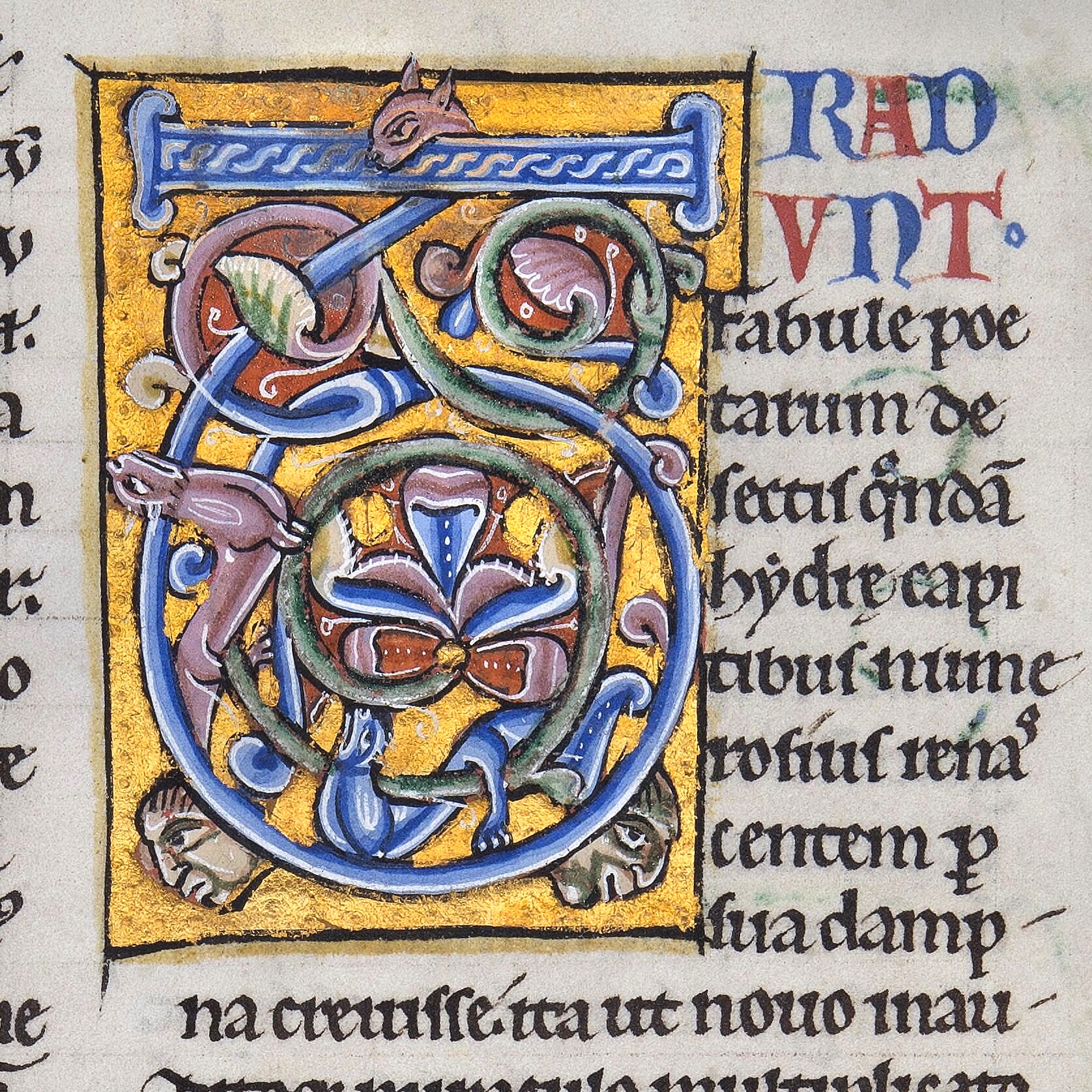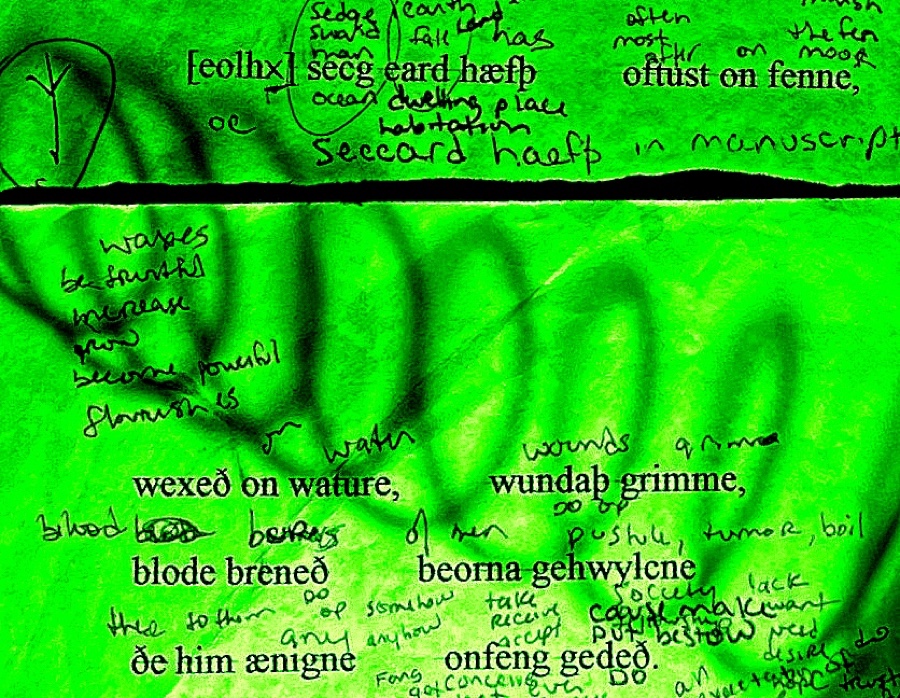 This is a stanza about a plant; this is clear from the context and from the word secg, which means a sedge or reed. It also means a person, poetically, and a sword. In Beowulf it is a sword: ac wit on niht sculon secge ofersittan, gif he gesecean dear wig ofer wæpen (but we two are obliged to abstain from the sword in the night, if he dare seek battle without a weapon.) I translate secg as sword to enhance the riddling nature of the stanza. Of all the plants, a sharp sedge is the most sword like. It’s got edges like razors and will cut you just like that. This one in particular will give you grim wounds, with burning bloody blisters. Stay away, don’t grab hold of it. Like the thorn, this plant wants you to bleed.
This is a stanza about a plant; this is clear from the context and from the word secg, which means a sedge or reed. It also means a person, poetically, and a sword. In Beowulf it is a sword: ac wit on niht sculon secge ofersittan, gif he gesecean dear wig ofer wæpen (but we two are obliged to abstain from the sword in the night, if he dare seek battle without a weapon.) I translate secg as sword to enhance the riddling nature of the stanza. Of all the plants, a sharp sedge is the most sword like. It’s got edges like razors and will cut you just like that. This one in particular will give you grim wounds, with burning bloody blisters. Stay away, don’t grab hold of it. Like the thorn, this plant wants you to bleed.
This sedge lives in the fen. The stanza says fenne,… More
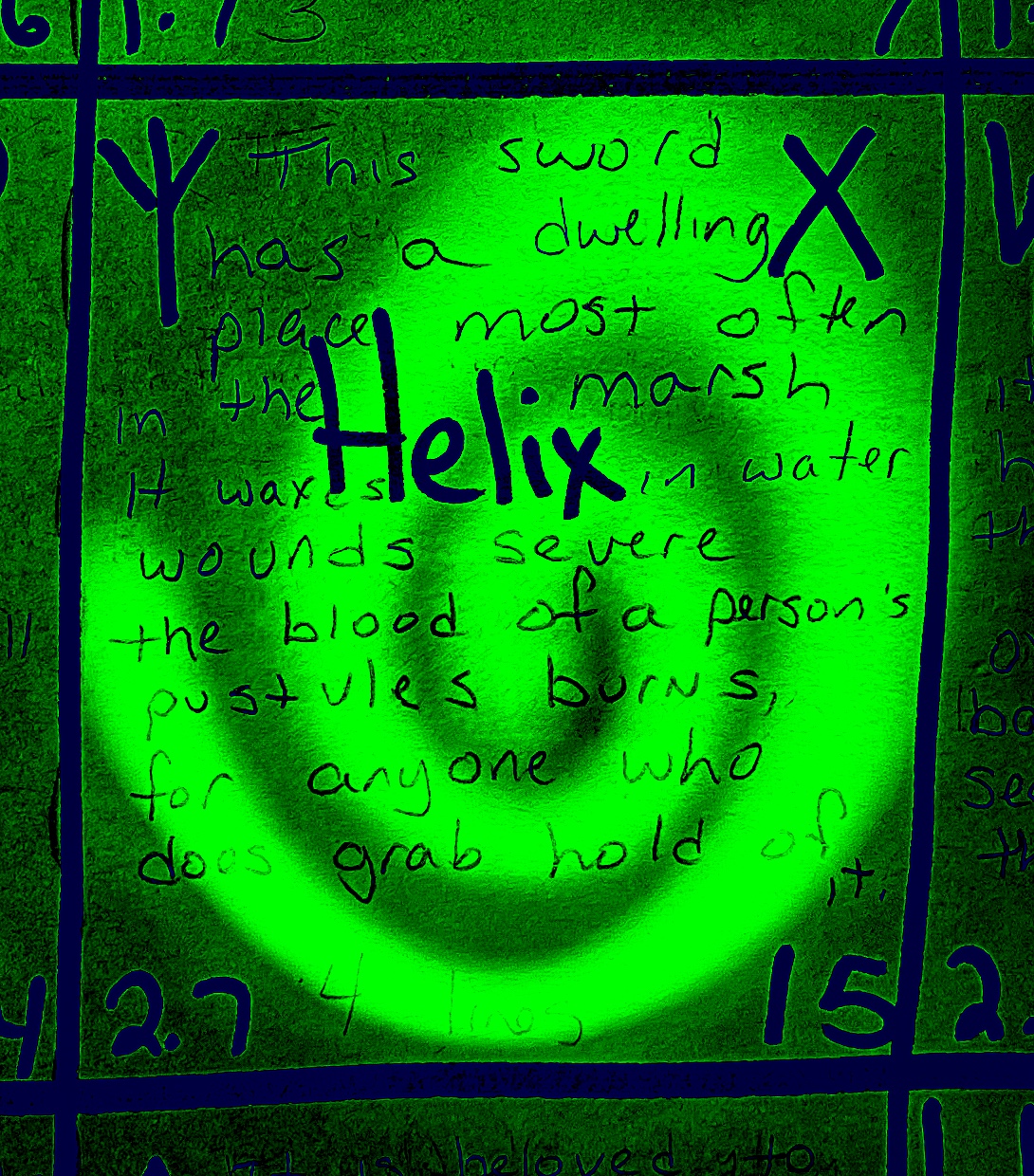
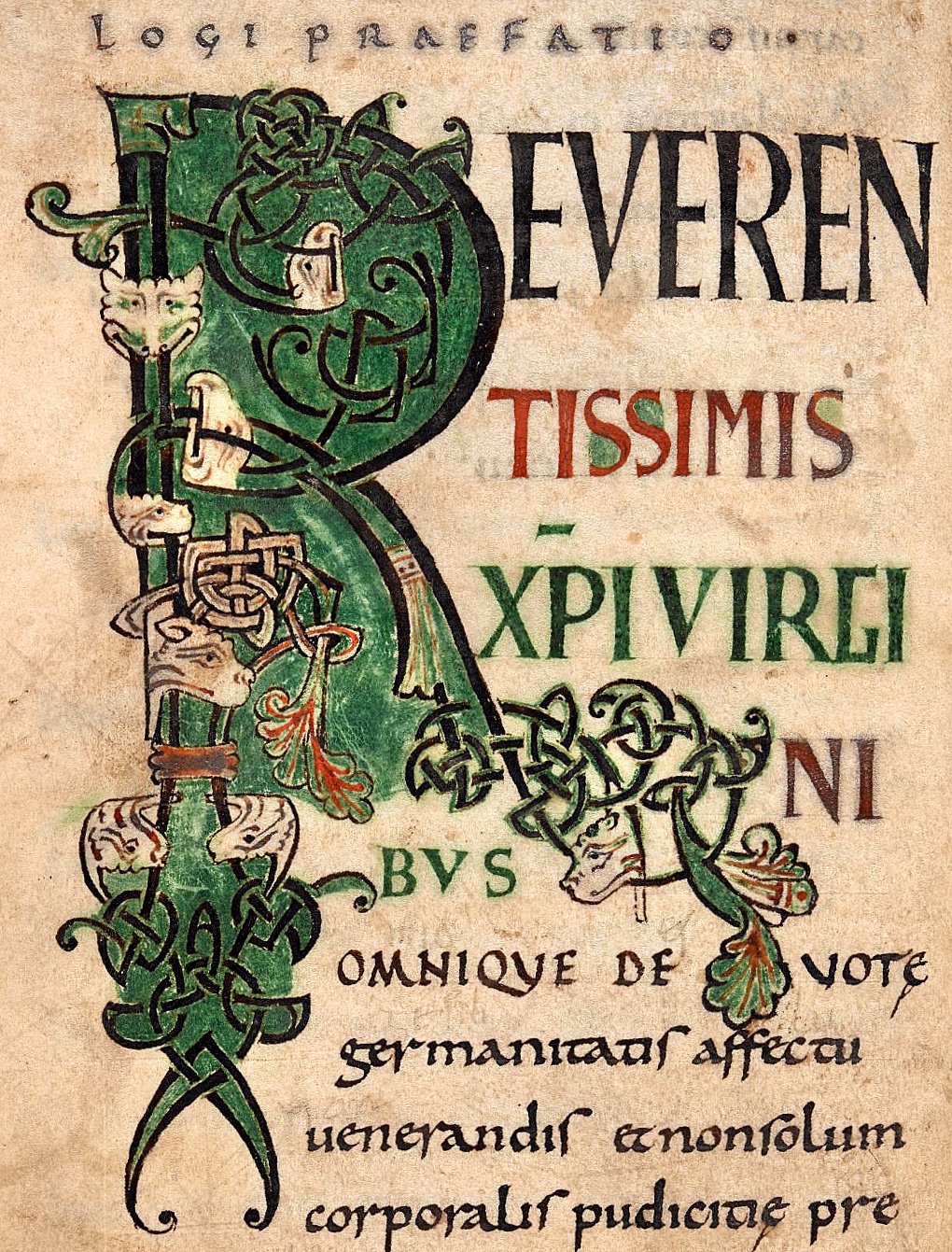


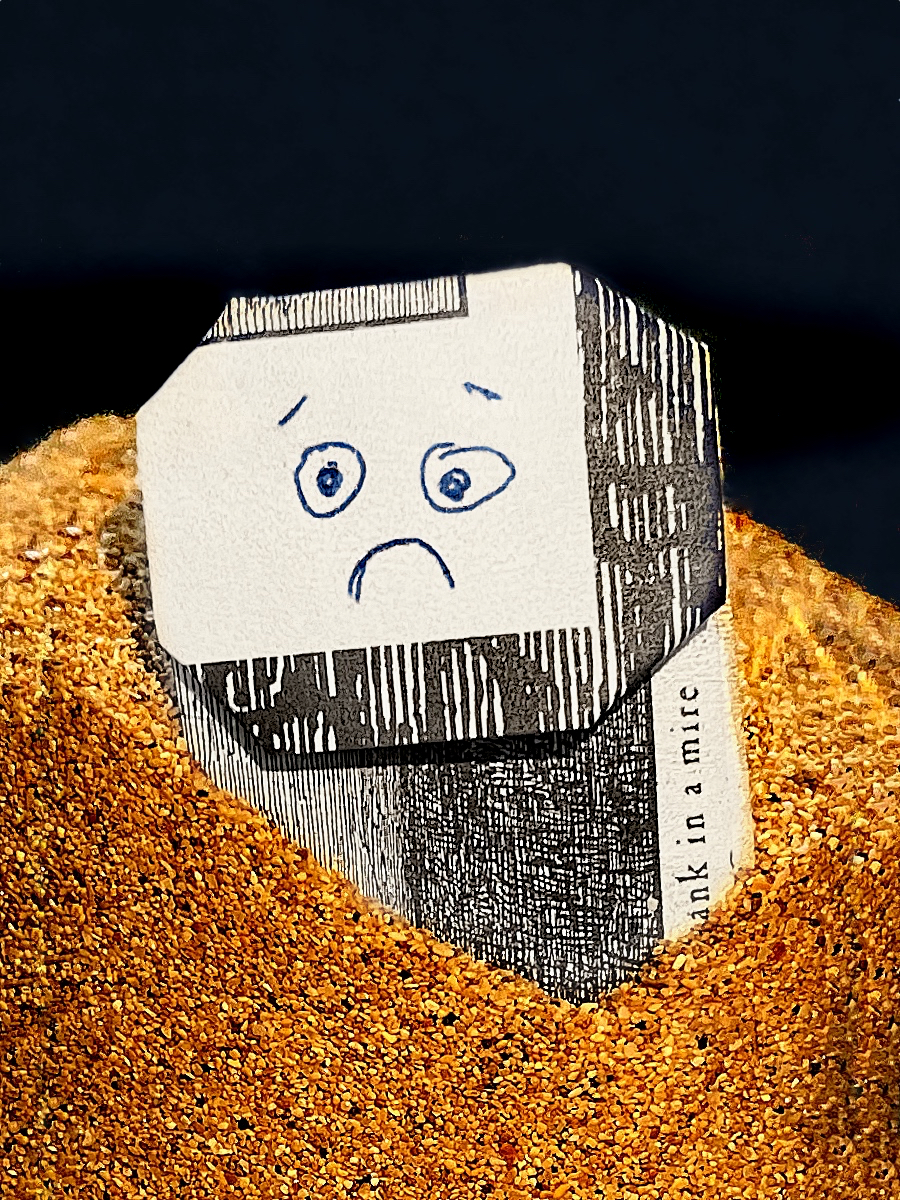 You’ll be mired in it. You’ll twist yourself up trying to get out of a quagmire and end up bogged down in quicksand. Sinking. Don’t grab over your head for something to pull yourself out with, that’s a sharp edged sword rotating just above. Turn around, you are facing the wrong direction. See that? There’s your path out. Go back the way you came and see it all again from the other side.
You’ll be mired in it. You’ll twist yourself up trying to get out of a quagmire and end up bogged down in quicksand. Sinking. Don’t grab over your head for something to pull yourself out with, that’s a sharp edged sword rotating just above. Turn around, you are facing the wrong direction. See that? There’s your path out. Go back the way you came and see it all again from the other side.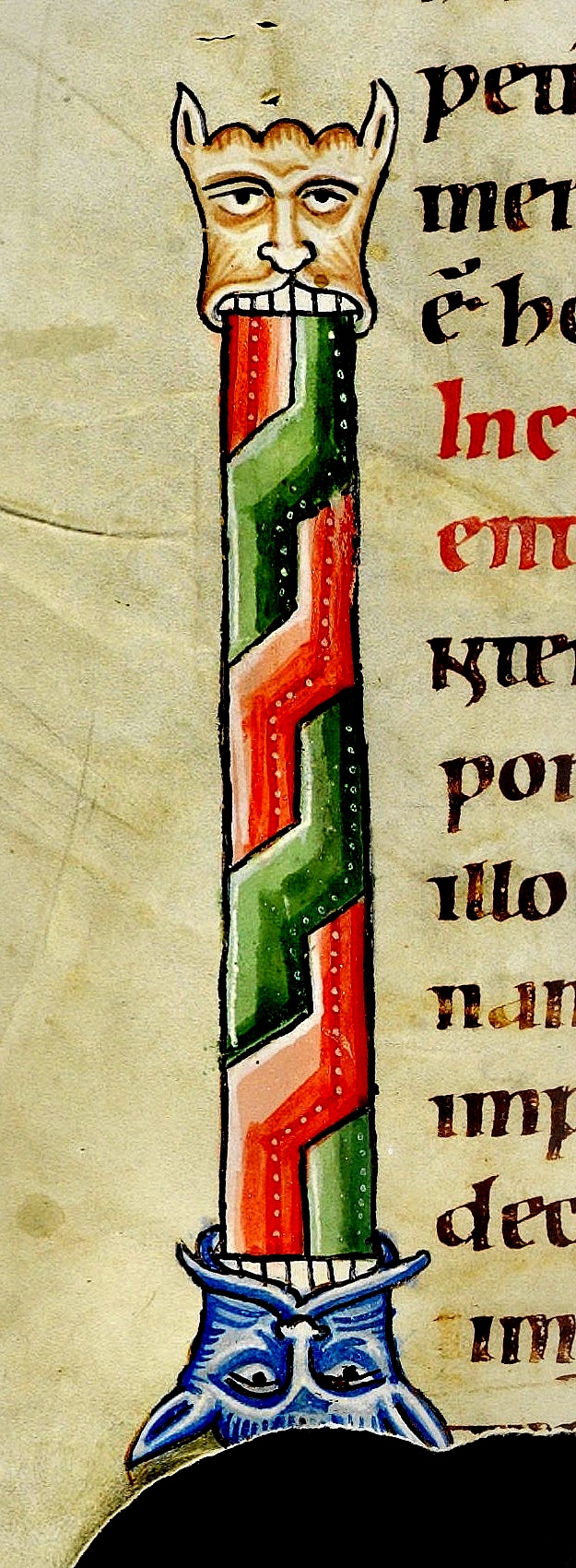
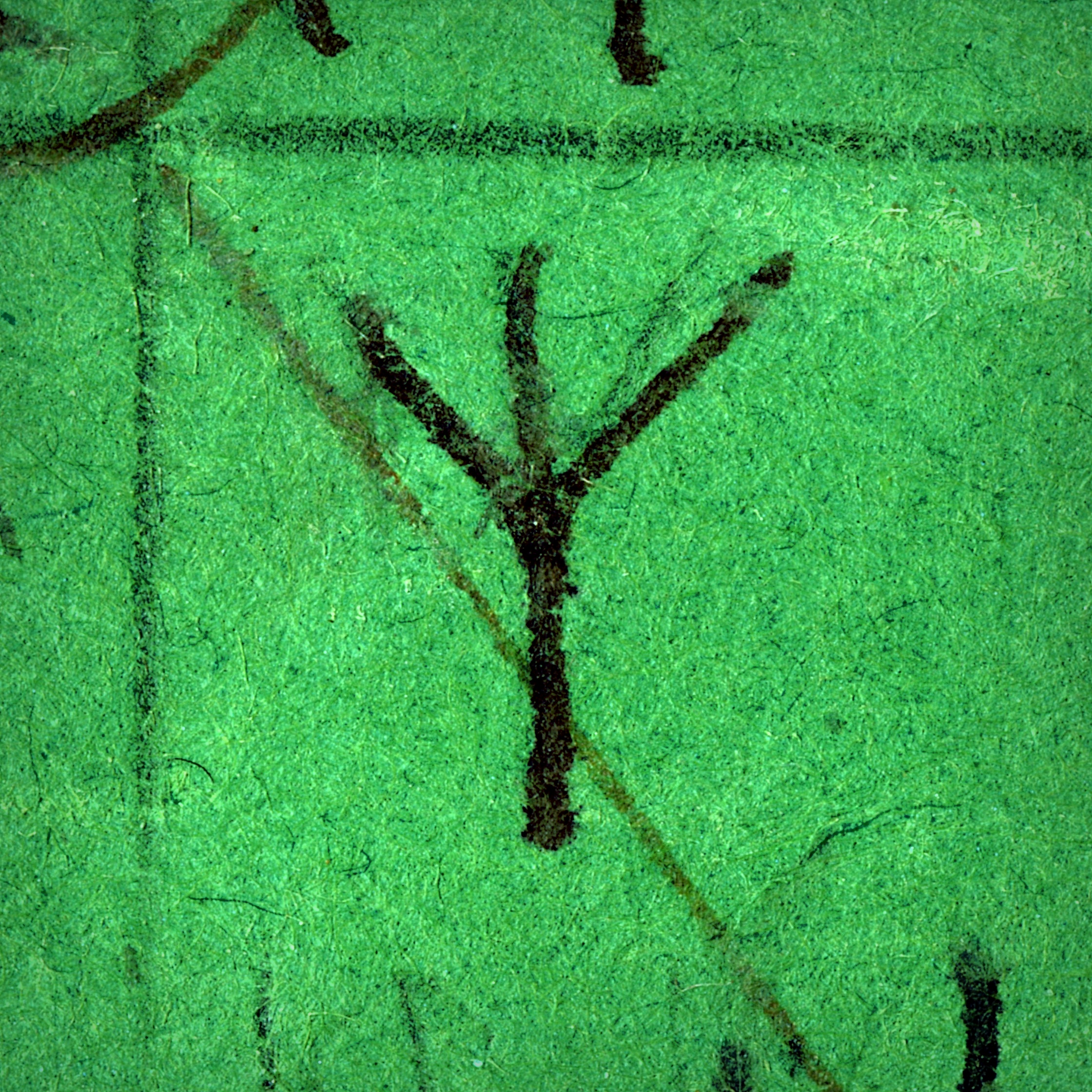 Solve for X. X = a stand in for consonant clusters: sounds like ks for word endings and when it appears after stressed vowels. It is an unvoiced ks when it comes before a t, voiced as gz for before stressed vowels, and kzh for the middle of words. It can also sound like Z at the beginning of a word, K in the middle, and sometimes remains silent for word endings. Why such a multiplicity of work for
Solve for X. X = a stand in for consonant clusters: sounds like ks for word endings and when it appears after stressed vowels. It is an unvoiced ks when it comes before a t, voiced as gz for before stressed vowels, and kzh for the middle of words. It can also sound like Z at the beginning of a word, K in the middle, and sometimes remains silent for word endings. Why such a multiplicity of work for 